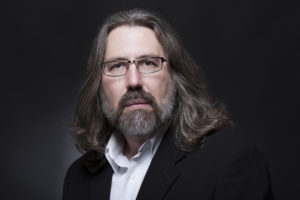 Forgetting what it Means to Remember
Forgetting what it Means to Remember
By Mark Williams, Ph.D
Professor of Rhetoric, California State University, Sacramento
(from the regular Column: “Meaningful-Faith: Words, the Word, and a Life of Substance”)
Memory is a tricky thing, and we have forgotten what it means to remember—or to forget. In Dante’s superb adventure story, the hero completes his trials and difficulties. In hell he had struggled and—finally!—learned to recognize the subtle way that lying withers the soul. In purgatory he had his eyes opened to the secret costs of sin that every soul must face in order to repent properly.
After these painful lessons and insights, the hero is preparing to begin the effortless ascent that will take him into the center of heaven where he will stand in the very presence of God. As a final part of those preparations, he is led to a river and told to enter it and drink. This is Lethe: the River of Forgetfulness.
Wait—forget? All those hard-won insights? His lessons about truth, beauty, goodness? What is the point of a lesson you are supposed to forget?
And here, we modern folk learn something crucial about memory.
In our day, we think of memory as either data retrieval or as casting the mind out of the present, back to some moment that is fixed and finished. We understand memory as a means of stepping out of the present into a hologram of something that is not here anymore and is, therefore, not as real as this moment. But this is self-indulgent tripe and spiritual child’s play. The ancients knew better.
For them, memory was a spiritual magic, based on the fact that reality is not limited to here and now. For thinkers of the past, to remember was to re-member: to bring back together what had been broken apart. To re-collect was to gather once more what had been scattered in chaos. To re-call was to summon again what we had exiled.
The past is as real as the present. To remember is to give the living past permission to act in the living present. Remembering gives the past the power to cause things to happen. To forget is to take that power away from the past. This is how those in the ancient world understood memory. It is what Paul and John and Luke, Aristotle and Plato, Augustine and Anselm thought it meant to remember.
When Dante emerged from Lethe, he was disoriented, of course. But he had not forgotten data or events or experiences. He knew who he was. He recognized the saints and spiritual guides preparing him for the last stage of his epic quest. He remembered his lessons learned. What he had forgotten was his sinfulness. His sinfulness no longer had any power over him in the present. He was free. But empty.
After passing through Lethe, he drinks from the next river, Eunoe (meaning proper mind), in which all memory of all the good he had ever seen or done is given to him fully. Now, his past sinfulness is no longer able to affect him, to cause him harm; forgetting his sinfulness meant exiling it, scattering it across an infinite chaos, breaking it off. But he remembers all the powers that are present in beauty and truth and goodness. These are now the authorities that inform, that educate, that shape his intellect and will.
Intellect, will, and memory are the three things that compose a human soul, according to the old Christians. Dante’s intellect was clarified when he left behind the lies of hell. His will was purified when saw the true costs of his sins. His memory was healed when he was taught to re-collect what has proper authority over the human soul. And so he is ready for heaven.
The proper act of remembrance and forgetfulness is, in the old way, the final step toward holiness. Our modern view of memory—that deepest part of the soul—is, at best, incomplete, and sometimes silly. I suspect we would be wise to re-call what it means to remember.
But we live in dark and shallow ages. We would probably be wise to recognize that the healing of memory is not our top priority. It is no use trying to forget our lies while we are still lying. That is simply to play into hell’s hands and lie to ourselves more thoroughly than ever.
No, we must travel, like Dante’s hero, into deeper darkness. Most of us should probably start by searching out and facing squarely the lies we have allowed to become part of who we are.
But if we do start there, it is possible that one day, after some epic journey, we will actually do something in memory of our Master, and remembering him, he will be real in us again.
